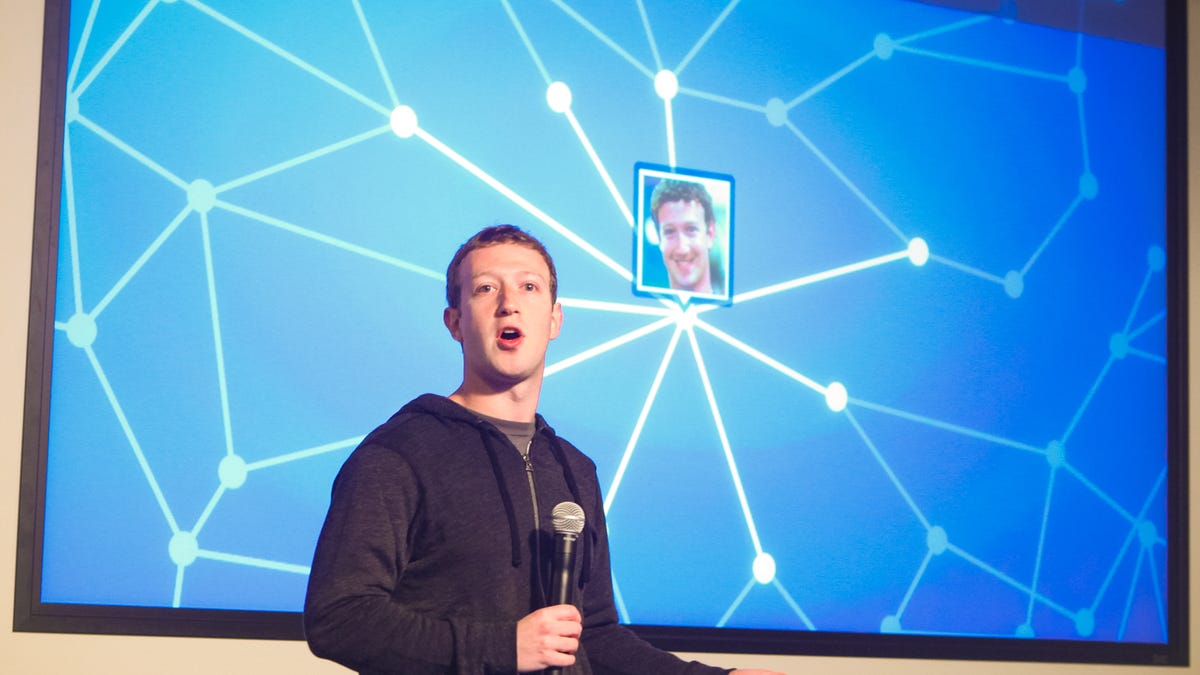Has Facebook morphed from innovator to serial copycat?
Facebook, and the entire tech industry, continue to innovate, mostly via new twists on existing technologies and features, combined with luck and perseverance.

Facebook has recently been criticized for being uninspired, for basically redoing features from competitive products rather than adding truly innovative new elements to its platform.
Last week, for example, Instagram (which is owned by Facebook) rolled out a new 15-second video capture and sharing feature, which has been characterized as a response to Twitter's Vine and several other video-sharing apps that preceded it. Adding filters and image stabilization isn't groundbreaking, despite Instagram co-founder Kevin Systrom's view that taking some of the fuzzies and wobbles out of video is "completely mindboggling." No doubt, Instagram had to keep up with the competition by adding video to its photo-sharing service, and Facebook provided the infrastructure assist to make it happen.
Many other features in Facebook could be deemed derivative, including the check-in feature pioneered by Foursquare and the Poke feature established by SnapChat. Earlier this month, Facebook added Twitter-like hashtags for searching items associated by a common # tag.
More recently, a report has surfaced that Facebook also wants to be like Flipboard with a mobile app that aggregates and displays information from a multitude of sources in a visual format that allows users to swipe and flip through content.
Even the idea for Facebook itself wasn't that original. In 2004, 19-year-old Harvard student Mark Zuckerberg had the idea to build a social network. His brainstorm had been preceded by ancestor sites such as Friendster and MySpace, and work with fellow Harvard students Cameron and Tyler Winklevoss and Divya Narendra, to build a social network connecting students at the university. The trio of fellow Harvard men eventually settled with Facebook after suing the company for allegedly stealing its ideas and source code.
Prior to Facebook, Zuckerberg toyed with building social networking services, including Facemash, a Web site for comparing two student pictures side-by-side to choose who was "hot" or "not." Facemash came about three years after two former University of California, Berkeley, engineers created hotornot.com.
At the same time, others have copied some of what Facebook has done well, such as the News Feed and Likes. So is Facebook, and the tech industry in general, more of an opportunistic cloner or improver of what exists than an innovator? Slate's Farhad Manjoo contends that "instead of invention, many in tech have fallen into the comfortable groove of reinvention."
The fact is true lightning bolts of discovery and innovation, such as the Internet's TCP/IP protocol, the DNA double helix, or the first stirrings of social networking, are uncommon and in gestation for years. For the most part, what appears to be innovative is a new twist on existing technologies and features, combined with luck and perseverance. It could be called inspired reinvention or rethinking of a feature or app that delivers an "aha" moment. If Facebook can do a better job than Flipboard, Twitter, Google or LinkedIn in delivering similar functionality that its users will love, then it should clone, or legally imitate, away.
As Steve Jobs acknowledged in a recently unearthed 1994 interview, products are built on top of what came before, and then buried in supporting layers beneath the surface as they are replaced by the next generation.
"This is a field where one does one's work and in ten years it's obsolete," he said. "It's sort of like sediment of rocks. You are building up a mountain, and you get to contribute your little layer of sediment rock to make the mountain that much higher." Just like Jobs built the Macintosh on top of the sediment from Xerox PARC and the iPod on top of the MP3 player and Napster, Zuckerberg is building his empire on foundations laid by others.
The genius, if there is any, is in seeing what others don't see in the sediment and what is beginning to emerge on top of it. The iPhone wasn't hatched unfertilized from Jobs' forehead. It was the coming together of several technology threads and Jobs' vision, will and assembled team to make something far better from the parts than what previously existed, and even invent some new parts.
From its college dorm beginnings, Facebook has been driven by Zuckerberg's intense, relentless focus on realizing his vision for social networking. His innovation has been in seizing the moment and systematically building a comprehensive, global platform that weaves a social layer into the Internet and scales to billions of users. So far, 1.1 billion people, including more than 650 million daily users, and $1.46 billion in revenue for its last quarter indicate that Facebook has done what other tribes with access to similar technology have not been able to achieve.
These risky ventures can give birth to new, disruptive board-based consumer platforms, with competing tribes furiously attempting to clone or imitate them. Following those natural births, the platforms continue to evolve with occasional breakthroughs in design, performance, reliability, pricing and usefulness, as well as misfires. Zuckerberg touted Facebook Home, which turns an Android phone into a Facebook device, as a breakthrough in design, but it has converted only about .0009 percent of Facebook users, despite the claim that people using smartphones spend 23 percent of their time on Facebook.
Given the lackluster result so far, Zuckerberg and team are likely feverishly reworking Home to find the "aha" moment that will update its status from dud to wildly popular and innovative, perhaps prolonging Facebook's residence on the top of the mountain.
Facebook declined to comment for this story.

